Covid: Nightingale surge hubs to be set up in eight hospitals, NHS England says
- Published
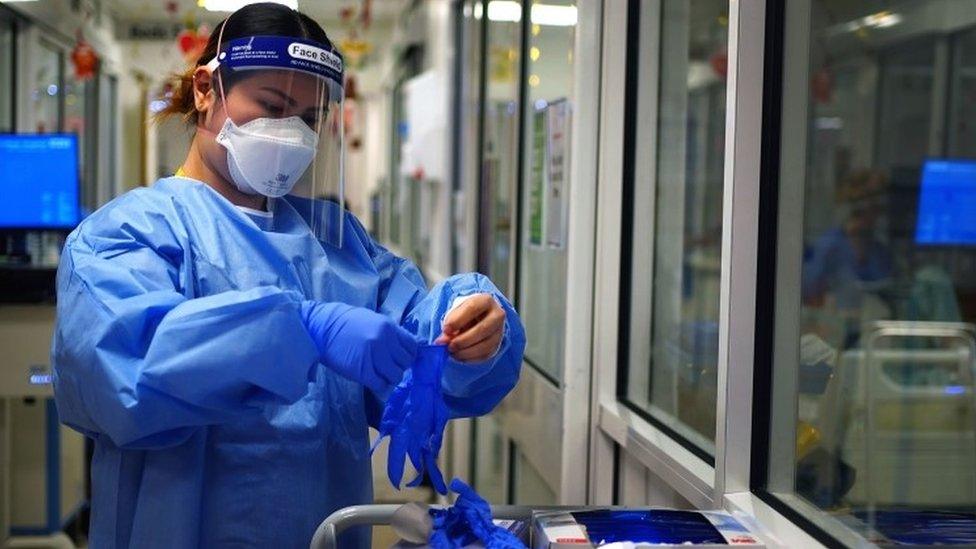
Coronavirus "surge hubs" are to be set up at hospitals across England in preparation for a potential wave of Omicron admissions, the NHS has said.
The eight temporary "Nightingale" units will each house about 100 patients, with building starting this week.
There are also plans to identify sites for a further 4,000 beds if needed.
Record Covid case numbers were reported in the UK on Wednesday and NHS medical director Prof Stephen Powis said the service was on a "war footing".
The NHS is often required to deploy extra beds over winter, but hospitalisations in England with Covid have risen above 10,000 for the first time since March.
Across the UK 183,037 daily cases were reported in the latest figures, with over 900,000 cases reported over the last seven days - up 41.4% on the week before.
There were 57 people reported to have died within 28 days of a positive Covid test on Wednesday and 516 deaths over the last week - 34.1% lower than the previous seven days.
However, deaths and hospitalisations are both slower to show up in the Covid data, often following rising case numbers after a few weeks.
Prof Powis said the NHS "cannot wait to find out before we act" given the number of infections and uncertainty about Omicron's severity.
Meanwhile, inconsistent supply of rapid lateral flow tests online continued on Thursday morning, following reports of similar issues at pharmacies.
Slots at PCR testing sites across England, Scotland and Northern Ireland were also largely unavailable - even for NHS and other essential workers. However, home PCR tests were available for delivery.
On Wednesday, the UK Health Security Agency (UKHSA) said test availability is refreshed throughout the day and people should keep checking online.
It added that eight million lateral flow tests will be made available to pharmacies by Friday.
Prof Peter Openshaw said the lack of testing availability shortly before New Year's Eve celebrations was "very worrying indeed".
The Imperial College London immunologist told BBC Radio 4's Today programme parties are often "absolutely perfect" conditions to transmit Covid people crowding together in poorly ventilated spaces.

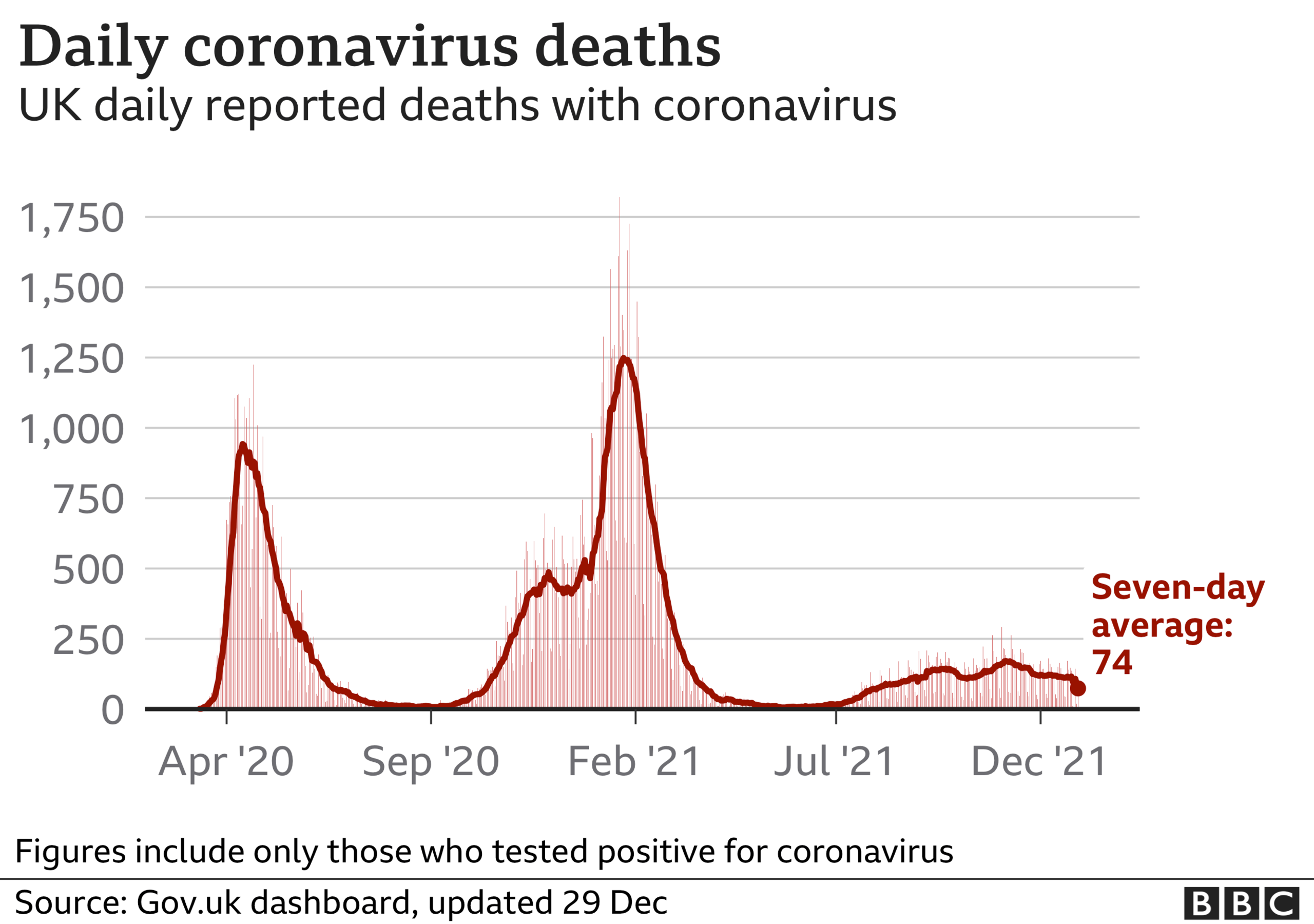
The Nightingale hubs will be located at:
the Royal Preston hospital in Lancashire
St James' University Hospital in Leeds
Lister Hospital in Stevenage
St George's Hospital in Tooting
William Harvey Hospital in Ashford, Kent
North Bristol Hospital
Solihull Hospital
University Hospitals Leicester

A series of hospitals sites named after the 19th Century nurse Florence Nightingale were set up in England during the first wave of the pandemic at dedicated locations such as the Excel exhibition centre in east London.
Health Secretary Sajid Javid said he hoped the new hubs "will not have to be used" but that it was right to prepare for all scenarios.
The hubs were described as a "back up insurance policy" by Chris Hopson, chief executive of NHS Providers - the membership organisation for NHS trusts in England.
An email seen by the BBC from Leeds Teaching Hospitals NHS Trust to its staff said that the hubs could be "activated in extremis".
Trusts have been tasked with identifying other places, such as gyms and education centres, which could be converted to accommodate up to 4,000 patients if required.

NHS braces for potential wave

This is not a revival of the Nightingale hospitals set up at the height of the pandemic in the spring of 2020.
Back then, large venues such as conference centres were pressed into service for an anticipated surge in seriously ill Covid patients.
But they were little used as major hospitals preferred to hold on to staff to deal with Covid pressures rather than lend them to the Nightingales.
This time temporary structures will be set up in the grounds of hospitals so staff, equipment and emergency departments are close at hand.
Only those patients who are close to being discharged and need minimal support will be cared for at these facilities.
Creating extra surge capacity is a familiar policy in winter months. But this is on a much bigger scale.
NHS England says its precautionary and the newly created structures may not be needed.
But the fact they are doing it suggests that, while Omicron may not make people as seriously ill as Delta, the NHS is braced for significant numbers in a potentially major new wave of Covid admissions.

They will be staffed by a mix of consultants, nurses, and other clinical and non-clinical staff.
Mr Hopson said he "recognises that this will add further stretch to an already hard pressed NHS".
As well as the new Nightingale surge hubs, up to 4,800 people a day will receive support via hospice beds or hospice teams.
The NHS will also be increasing its use of virtual wards where patients are monitored via remote technology.
GPs also have access to pulse oximeters - devices that can read blood-oxygen levels, allowing Covid-19 patients to monitor at home.
The network of emergency Nightingale hospitals set up in spring 2020 to cope with the first wave was closed down in April this year.
In England, seven Nightingale hospitals were built, starting with the 4,000-bed facility at London's ExCel centre. Another was set up in Belfast, while Scotland and Wales had their own temporary hospitals.
Since the closures some sites were used as rehab centres and other sites were kept open for vaccinations.

LAURA MVULA'S MUSIC ROOM: The star on the music that has got her through 2021
SIMPLE PLEASURES: Sandi Toksvig explores the Danish notion of hygge

- Published29 December 2021
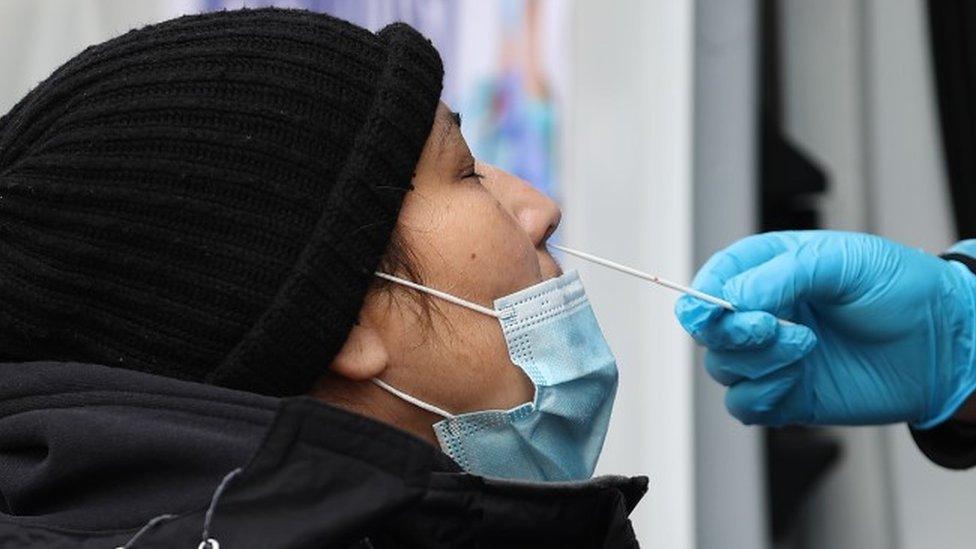
- Published29 December 2021
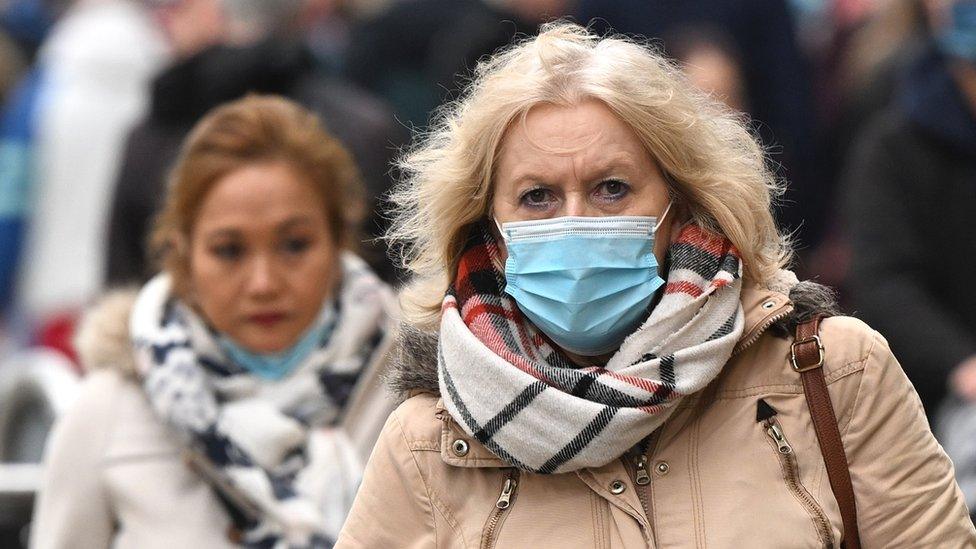
- Published29 December 2021
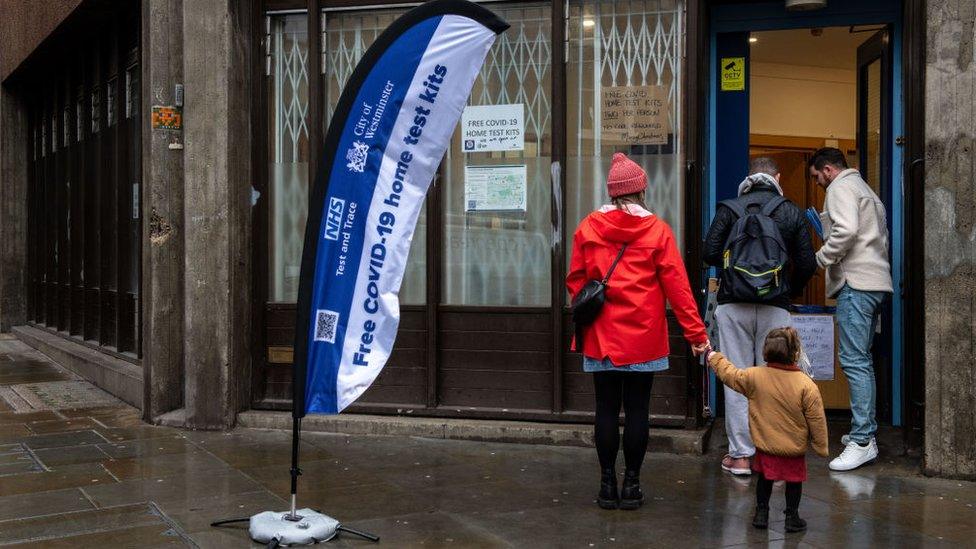
- Published6 April 2022

- Published1 July 2022
